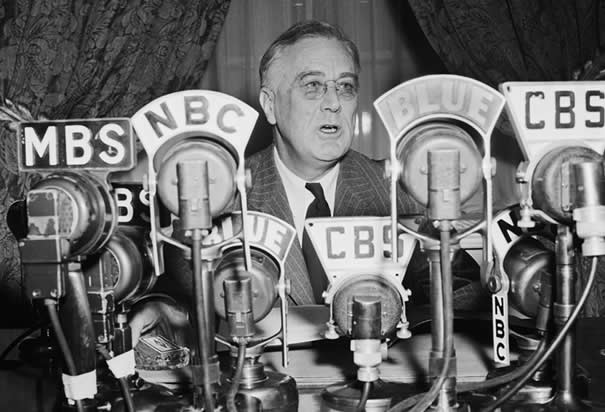- Home
- /
- History of the New...
- /
- Oral Histories of the...
Oral Histories of the New Deal

Oral histories are a vital link to the past. Oral history is a way of “preserving and interpreting the voices and memories of people, communities, and participants in past events”. Oral accounts compel us to go beyond textbooks and official versions of history to see how individual perspectives and values shape every person’s experience of the world and place in it. They can often challenge what we think we know, triggering “an impassioned conversation across the generations.”
The New Dealers recognized the importance of oral histories in preserving the past and challenging traditional narratives of American history. Workers for the Federal Writers’ Project collected thousands of life histories, a program “designed to document the diversity of the American experience and ways ordinary people were coping with the hardships of the Great Depression,” These remain essential sources for learning about people whose experiences would otherwise have gone unrecorded.
The most famous are undoubtedly the WPA Slave Narratives, thousands of first-hand accounts of African American life under slavery that are still the most comprehensive resource on the lives and thoughts of slaves.
Because the Living New Deal is dedicated both to preserving the past and fostering awareness in the present, oral histories are crucial to our work. These reflections by and about those who contributed to an important era of American history are vital to keeping memory of the New Deal alive. Here, you will find links to a range of previously compiled oral histories, from CCC workers in Louisiana to members of a resettlement community in Maryland and from New Deal muralists to African American women who participated in the WPA. In addition, we offer our own collection of stories submitted by Living New Deal readers about their families’ experiences with the Great Depression and the New Deal. Some of these oral histories focus on entire group, others on an individual. But all pose the same questions: What do people remember? How do they tell their stories? What can we learn from them? How do their stories compel us to reevaluate our collective past?
Histories of The Civilian Conservation Corps
- Acadia National Park (description of collection only)
- William Nothstein Interview (conducted by UNC)
- Guadalupe Conde Interview (conducted by the University of Texas)
- Forest History Society Oral History Collection
- Ezekiel Rhodes, CCC Member in Texas
- University of North Texas CCC Histories
- Theodore Sperry Interview (conducted by the University of Wisconsin)
Histories of The Works Progress Administration
- Bancroft Library Regional Oral History Office
- Interview with WPA Artists Arthur and Jean Ames
- Interview with WPA Artist Milford Zornes
- Charles Grantier Interview (conducted by the University of North Dakota)
Histories of Other Programs
General Histories of the Great Depression
- “Always Lend a Helping Hand”: Sevier County, Remembers the Great Depression
- Uintah County, Utah, Oral Histories Collection
- The Black Women Oral History Project
- Columbia Center for Oral History Research
- Studs Terkel, Hard Times: An Oral History of the Great Depression
Oral Histories Conducted By The Works Progress Administration
- American Life Histories: Manuscripts from the Federal Writers’ Project, 1936-1940
- Life Histories
- WPA Slave Narratives
List compiled by Research Associate Shaina Potts in February, 2016.
